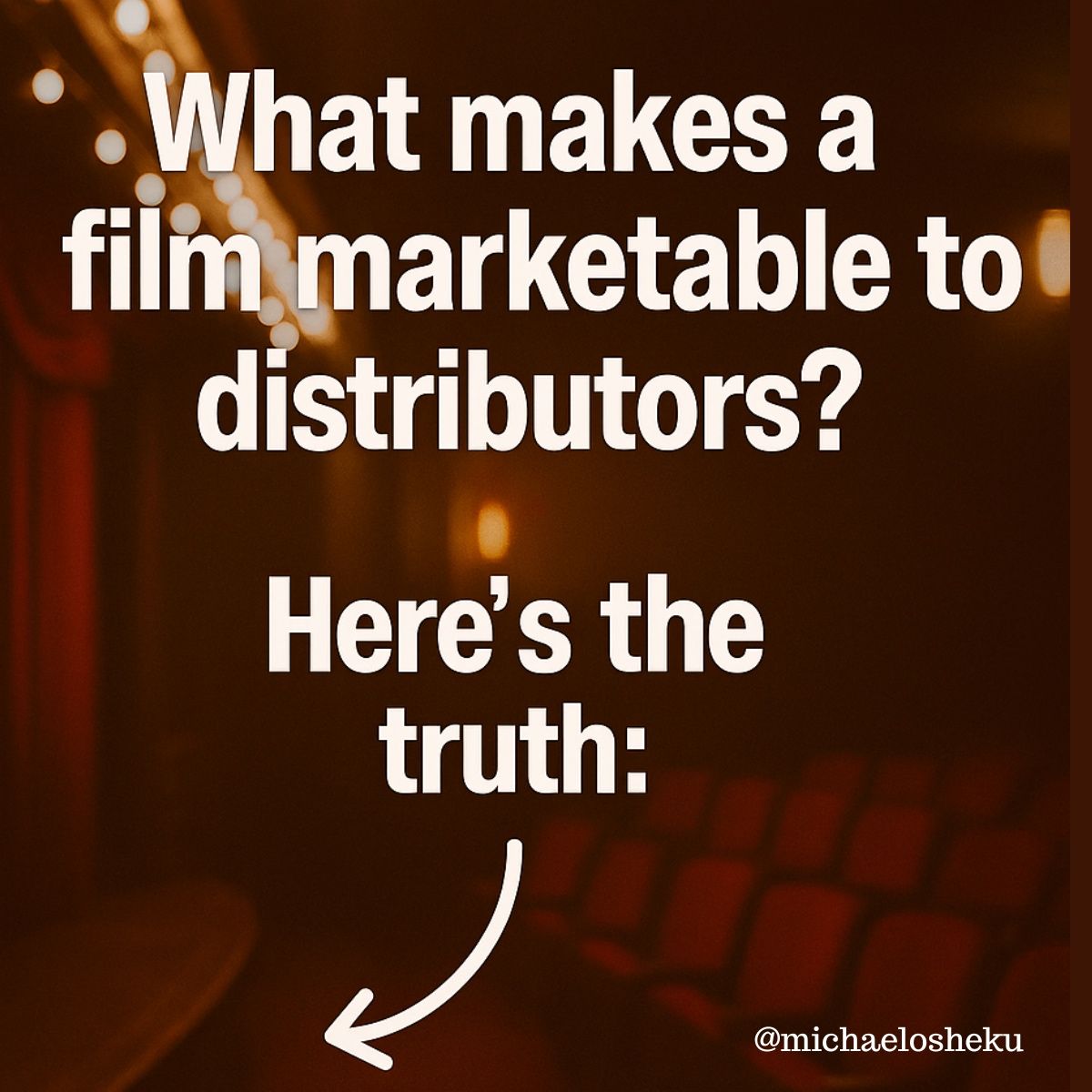
What Makes a Film Marketable to Distributors?
That’s a question I’ve heard more than once.
And I get it — after pouring your heart, time, and savings into production, you just want to know:
Will someone buy this?
It’s an honest question.
But here’s the truth most filmmakers never hear:
✖️ A good film isn’t always a sellable one.
✖️ A powerful story doesn’t guarantee a deal.
✖️ Even a festival screening doesn’t automatically open distribution doors.
✖️ And great visuals alone won’t close the deal.
Because distributors aren’t just watching — they’re calculating.
They’re not moved by emotion; they’re moved by market potential.
So What Makes a Film Marketable?
If you’re serious about distribution, these are the traits that matter most — and most of them should be built before you even start shooting.
🎯 1. Clear Audience
Distributors don’t buy “films for everyone.”
They buy films for someone.
Know your audience as precisely as possible — age, culture, interest, and geography.
A romantic drama about African millennials in the diaspora, for example, sells differently than one about middle-aged love in rural Europe.
If you can define who it’s for and where they are, you’ve already done half a distributor’s job.
🎬 2. Defined Genre and Format
Distributors buy categories, not vibes.
If your film is hard to classify — part drama, part experimental art, part documentary — you’ll struggle to fit into existing buying channels.
Know whether your project is a feature, short, series, or docuseries, and position it firmly.
When in doubt, check how similar films are labeled on streamers like Netflix, Tubi, or Showmax.
⏱ 3. Watchable Runtime
Sometimes, the difference between “selected” and “skipped” is 15 minutes too long.
Many platforms prefer features under 100 minutes or shorts under 20 minutes because of programming and viewer retention.
You can be cinematic without being excessive.
A tight runtime increases your film’s rewatchability and licensing potential.
⚡ 4. A Marketable Hook
This is your why now factor — what makes your film relevant and irresistible today.
It could be:
- A known actor or influencer in the cast
- A timely social theme (migration, climate, innovation, identity)
- A niche or subculture not often seen onscreen
- A unique stylistic approach or viral premise
Remember, distributors are storytellers too — they need a marketing angle to pitch your film to buyers and platforms.
🧰 5. Polished Materials
Your film might be great, but your materials sell it.
That means:
- A clean trailer that hooks attention in 30 seconds
- A poster that looks professional and communicates genre instantly
- Reviews, laurels, or press features that add credibility
- A one-page sales sheet or EPK that answers all key questions at a glance
Think of these as your film’s storefront.
No distributor wants to sell a product that doesn’t look ready for the shelf.
🏆 6. Strategic Festival Path
Festivals still matter — but not for the reason most filmmakers think.
It’s not about collecting laurels; it’s about targeting markets that align with your audience and buyers.
For instance:
- A film about migration plays well at social-issue or diaspora festivals.
- A genre film benefits from specialized festivals like Fantastic Fest or Screamfest.
- Documentaries perform best at thematic events where NGOs or broadcasters are present.
Use your festival run to build momentum, not vanity. Each screening should advance your market readiness.
Distributors Don’t Discover — They Acquire
Here’s the mindset shift:
Distributors are buyers, not talent scouts.
They rarely go out searching for hidden gems — they acquire what’s already positioned to sell.
Your job as a filmmaker is to make your project impossible to ignore by doing the groundwork.
If your film feels market-ready — with a defined audience, packaging, and presence — you’ll attract attention faster than a dozen “festival darlings” with no commercial plan.
The Takeaway
The market doesn’t reward passion alone — it rewards preparation.
A film becomes marketable when it feels like it already belongs in the buyer’s catalog.
So before you finish your next project, ask yourself:
“Who is this for?”
“Why now?”
“And what will make a distributor say yes?”
Because success in film sales isn’t luck — it’s positioning.
Written by Michael Osheku
Creative Director | Film Sales & Distribution Strategist | CreativeTech Entrepreneur
FOLLOW ME
